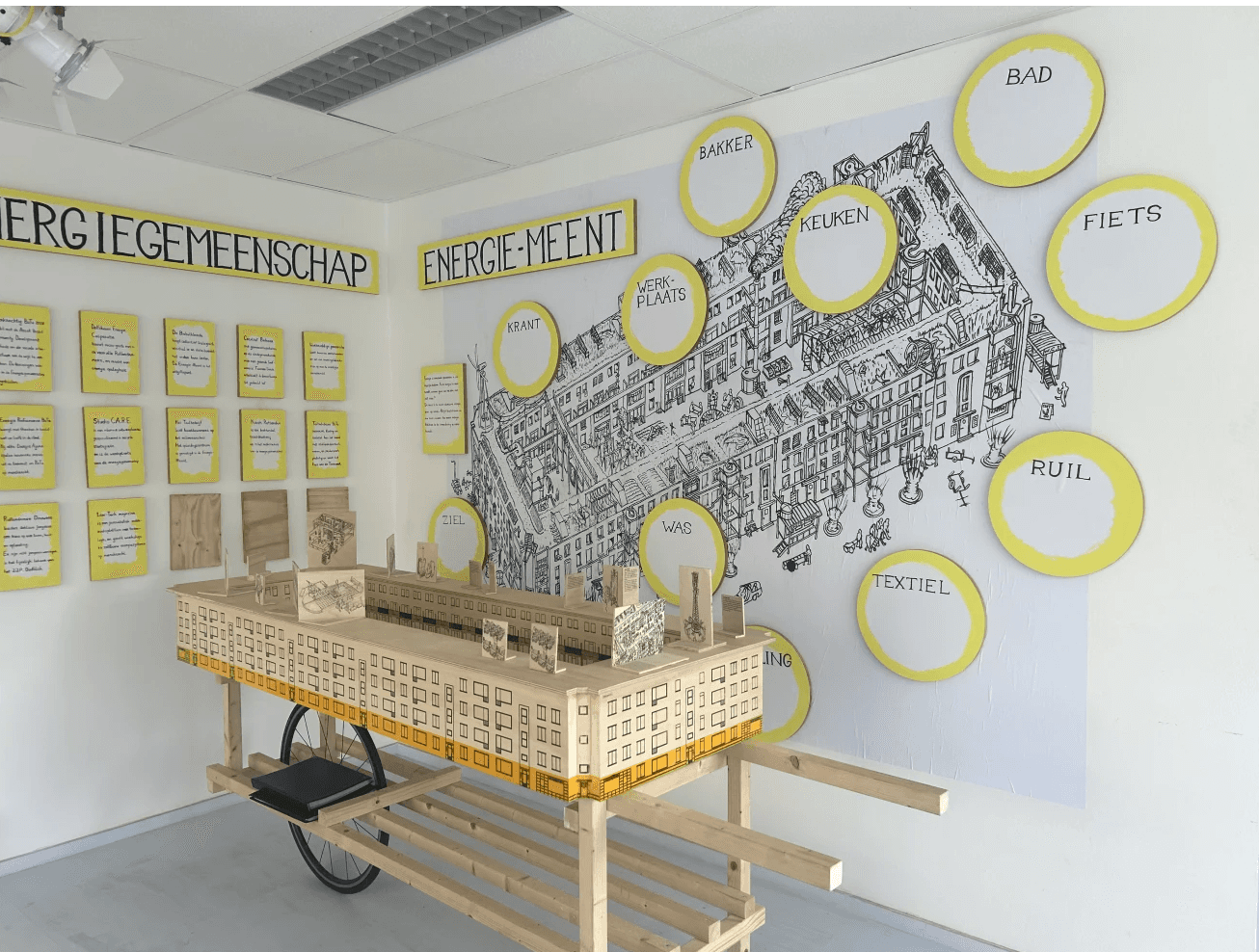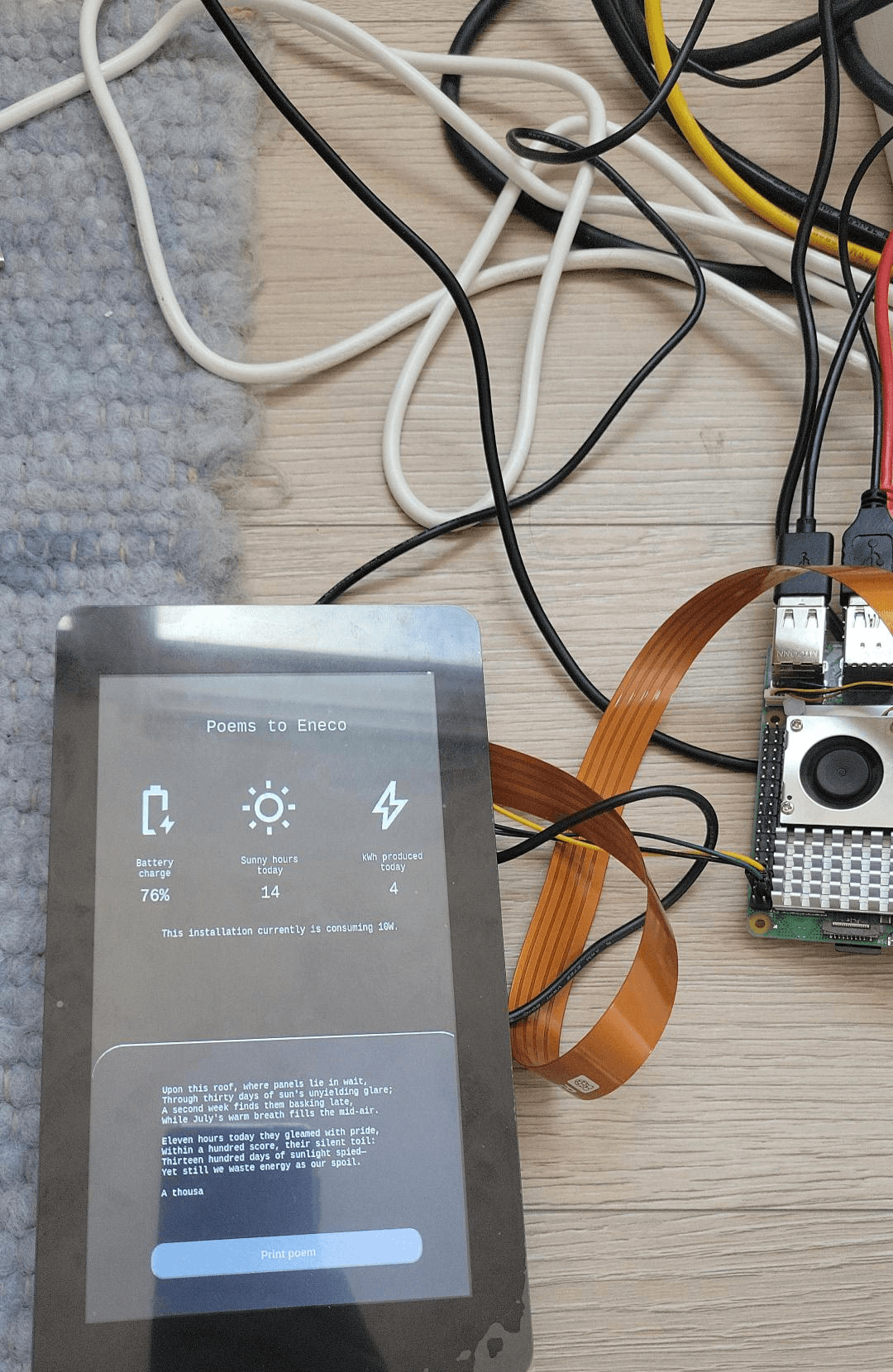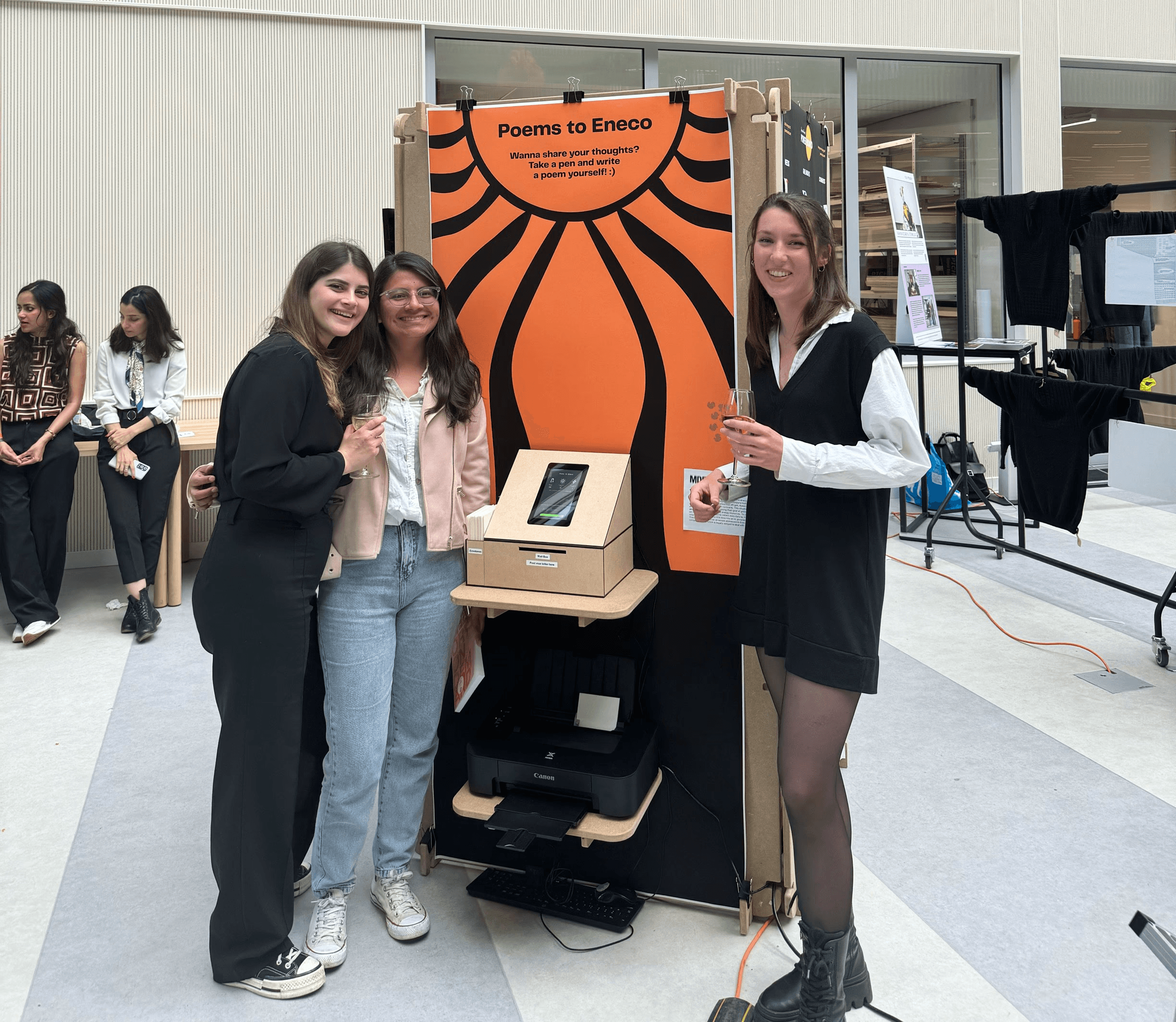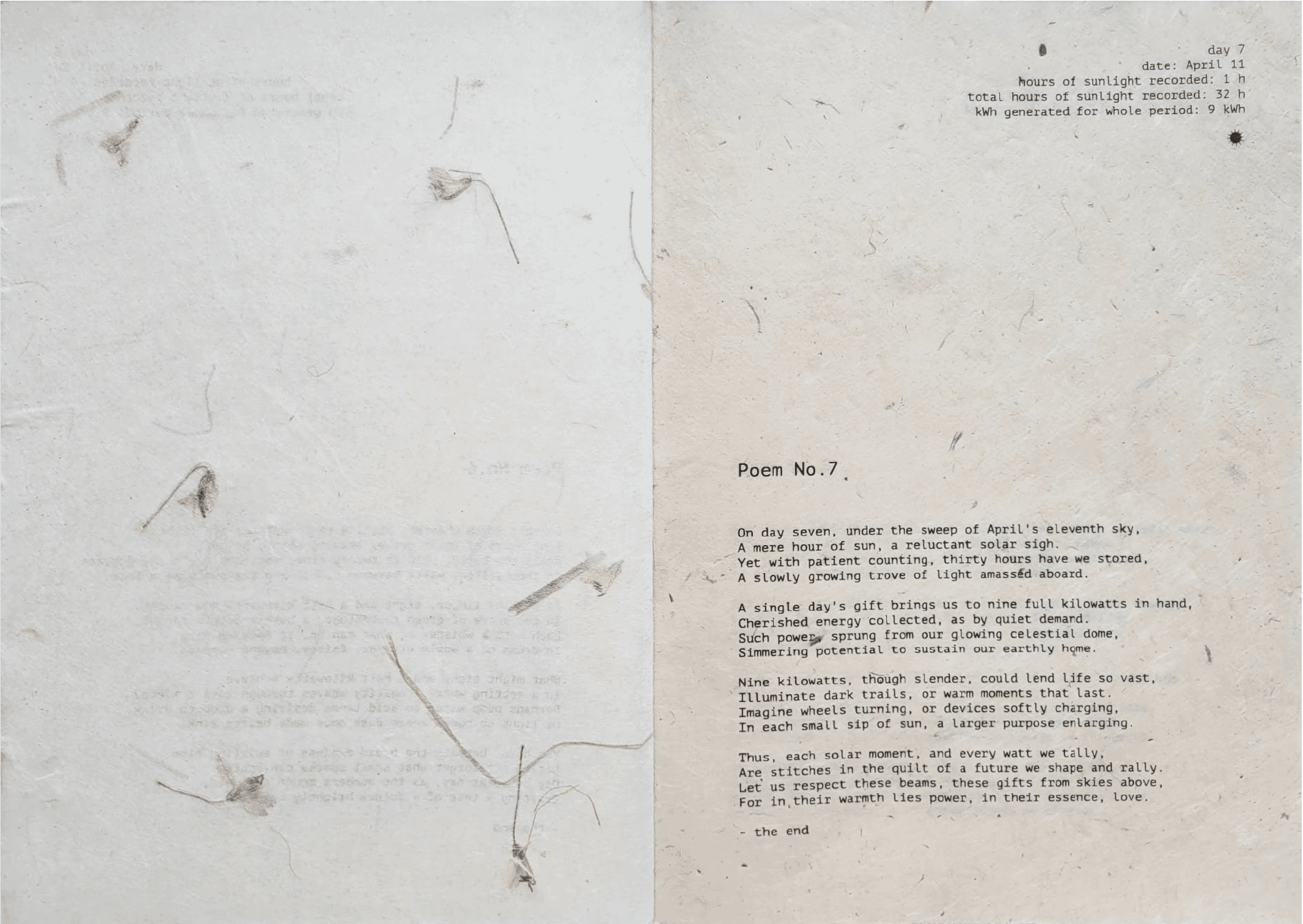Poems to eneco
Client: Huis van de Toekomst Rotterdam
A project by josefina vizcarra Meza, Nesrin Civelek, priyanka Nagar & Maria barbulovic
This work criticises the monopoly that the energy company Eneco holds within the BoTu area in Rotterdam. It is one of the poorest regions in the Netherlands and it's also where our client, the "Huis van de Toekomst" is situated. Its goal is to get off-grid in the future, but the contract with the energy company "Eneco" is keeping them from producing their own off-grid energy. Our design aims on criticising this situation in an activistic way. It runs fully off-grid and is powered by a solar panel. This panel generates power to charge the boat battery that is running the whole installation. also, it sends data to a RaspberryPi 5. On there, a large language model (Phi3) is installed. This model got assigned the task to write poems based on the panel's data (e.g. produced kWh). These poems can then be printed and put into an envelope addressed to Eneco's complaint centre (post box). Each company is legally obliged to deal with every complaint it receives. The picture shows our first prototype.


As an AI Model we chose Microsoft's Phi3 out of various reasons. First of all, it is open-source and therefore can be used offline. Also, it is relatively small in comparison to others, which made it possible to install and run it locally on the Raspberry Pi.
The "Huis van de Toekomst" or "House of the Future" is producing its own paper which is also the kind of paper we used to print the poems on.
The whole installation theoretically could work anywhere because it is using off-grid-energy, so it would also work as a pop-up event in any region where an energy company holds a monopoly, making it a scalable activistic movement.
For the afterlife of this project I planned unifying the design into one counter. The surface would be covered in flexible solar foil. That way, the big solar panel would become obsolete, making it way easier to change the installation's location.
That way, it could become a pop-up event in other regions that are facing similar issues with energy suppliers, transforming it into something that can be explored nationally or even internationally.




